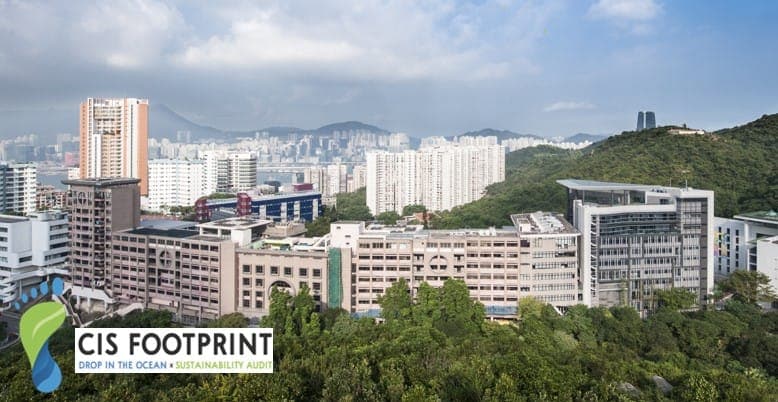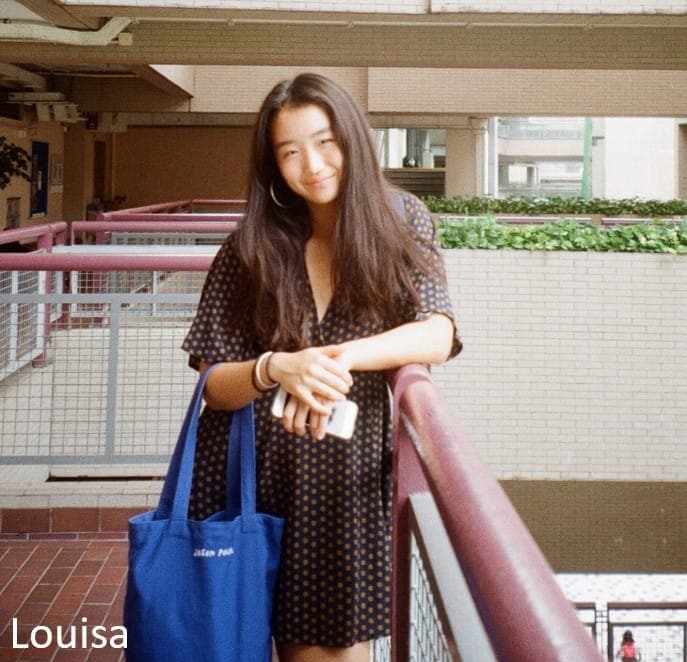
During the 2019-2020 academic year, Metanoia conducted a student-centred, whole-school sustainability audit with the Chinese International School (CIS).
Metanoia’s sustainability audit provides helpful benchmarks of a school’s sustainability performance, aims to help a school unlock the sustainability learning embedded within its campus, and provides actionable recommendations in twelve different areas.
Our approach, with students at the centre, covers all aspects of the school’s operations and daily life and also involves all stakeholders enabling the whole school to be more involved in the sustainability journey.
In June 2020, as part of the review and reflection process, Metanoia sat down with two of the CIS environment and sustainability group student leaders, Louisa (Class of 2021) and Gaile (Class of 2022), who led and participated in the audit.
We asked the students what they learned during the process, why they think it was important for CIS to conduct a whole-school sustainability audit, and what they hope to see in the future.
Metanoia: Can you briefly introduce yourself and tell us why you’re passionate about sustainability, and what environmental issue you feel most passionate about?
Louisa: My name is Louisa. I’m a Year 13 student at CIS and my favourite subject is film. When I was younger, I first got into environmentalism largely through learning about plastic waste and global warming, but as I’ve gotten older, I’ve become more interested in intersectional environmentalism.
Gaile: My name is Gaile, I’m currently in Year 12 studying the IB program. I am passionate about sustainability because of its link to the health of our home. I am most passionate about the plastic pollution issue because, in this day and age, it feels impossible to avoid plastic, and we can see that plastic pollution is a huge problem that impacts everyone and everywhere. We can all begin combating this larger issue by changing our individual habits.
Metanoia: Why do you think it was important for CIS to conduct a whole-school sustainability audit?
Louisa: I think the audit is important for a few reasons. First, it shows CIS’s commitment to making systematic changes that go beyond student projects and initiatives, which can sometimes be limited. Second, through the process of carrying out the audit, we were able to show the community the many elements that a sustainability audit encompasses and why conducting an audit is important for setting goals, making changes, and tracking progress.
Gaile: I believe the sustainability audit is important because it gives us a much clearer picture of CIS’s current ‘environmental friendliness’ and gives us a clear path on how we can systematically make our school more sustainable. As helpful as raising awareness is, understanding the larger picture and where exactly our faults lie and then making improvements, is much more productive and effective.
Metanoia: What did you learn about your school as a result of taking part in the sustainability audit?
Louisa: I learned a lot of surprising information about our school’s impact on the environment, and I learned how in-depth an audit is, which I had no idea about before. I also learned that there’s so much we can do to improve our sustainability efforts as a school.
Gaile: It was surprising to learn about how the sustainable design features of our newest school building, Block 0, help reduce its environmental impact. It was eye-opening to understand how impactful sustainable building design can be in reducing an organisation’s carbon footprint.
Metanoia: How was participating in the whole-school sustainability audit different to your schoolwork or other extracurricular activities?
Louisa: The main difference was that schoolwork is often completed for individual benefit. For example, you study for a test so that you do well on it, but with the audit, we were a group of students, teachers and consultants working together on a larger project that is designed to help the community. I always felt motivated to do the audit work because I knew my efforts were going towards a greater good beyond just my individual benefits.
Gaile: Everything we did for the audit was different to regular schoolwork because it was connected and applicable to the real world. The knowledge and skills I acquired throughout the process will probably help me for the rest of my time at school and into the future. Also, the work we did for the audit has a direct impact on our school, and I don’t think the same can be said about a lot of the other extracurricular activities or schoolwork that we normally do.
Metanoia: What was something you enjoyed about participating in the audit?
Gaile: I really enjoyed how, because the audit was designed to be student-centred, we were involved throughout the entire process. I particularly enjoyed participating in the curriculum interviews as I gained great insights into how CIS develops the curriculum, and it was really uplifting and inspiring to hear so many teachers express their desire to teach more sustainability-related topics.
Metanoia: Has participating in the audit made you reflect more about your lifestyle or change any aspects of your lifestyle?
Louisa: When I learned about how many physical books we order every year and how much printer paper we use, I realised that I had normalised this large amount of consumption and waste as a part of my education without questioning whether it was all necessary. After reflecting on the audit’s findings, I’ve started to view aspects of my school life, like this mass consumption, differently.
Gaile: I have thought a lot about reviewing my family’s practices and working to help our household become a lot more sustainable. Maybe I’ll do a sustainability audit of our home!
Metanoia: How do you think the sustainability audit will help CIS on its sustainability journey?
Louisa: Not only will it make our school greener through the various recommendations we plan to implement, but I also think it will help foster more conversations about environmental issues and sustainability. I hope the support our school has shown for reducing our environmental impact through conducting this audit is the start of CIS’s long-term commitment to sustainability.
Gaile: The sustainability audit helped us understand how sustainability can be integrated into all areas of our school, it helped us identify areas that require urgent attention and helped us make informed decisions.
Metanoia: Complete the following sentence with a few words: “When I think about the work I did on the audit I feel …”
Louisa: When I think about the work I did on the audit I feel proud, a little tired, and excited. I’m proud of all the effort everyone put into making this project happen. I’m a little tired because good results never come easy, and I won’t pretend I was all cool and calm for the entire year. There were stressful moments, but these were nothing that the excitement and passion couldn’t override.
Metanoia: How was your experience working with Metanoia?
Louisa: I enjoyed my experience working with Metanoia because of how balanced it was. I never felt scared to reach out if I needed help or to be honest with how much work I could really get done. There was no judgment, and I truly appreciate that. Everyone was so committed, and it took a lot of time, but the whole process was still fun, which was the best part!
Gaile: My experience working with Metanoia was amazing! Everyone was really kind and helpful. I look forward to continuing work with Metanoia in this next school year!
As is clearly highlighted by the insightful responses of these two student leaders, the benefits of conducting a student-centred, whole-school sustainability audit are not limited to improving the sustainability practices of a school. The audit offers students authentic, real-world learning opportunities. By working alongside industry professionals, students were empowered to become active agents of change, gaining knowledge and skills that they can use far beyond the four walls of a classroom.

